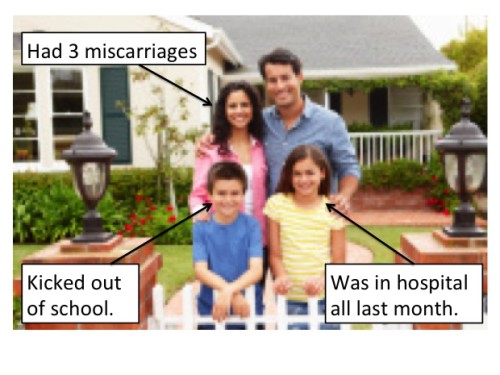(This is part 3. For the introduction see part 1 or for a more abstract approach, part 2.)
What about right now? What about the psalm we just read? What about the rich/wicked prospering around us – what are we supposed to do about them? How can we help getting all depressed and grouchy about it? Here are some points to consider.
First of all, who are the “the wicked” that the psalmist is talking about? Who were these rich fat cats that seemed to get away with everything? Foreigners? Kings and rich nobles is far off Egypt of Babylon? Doubtful. His knowledge of them would have been only a rumor. And even if he did know something of them, they are too distant, both physically and psychologically, to envy potently. He would have never met any of these actual folks. Their rich lives in far off lands might as well have been on another planet. He was in no danger of despairing over the lack of something he didn’t know first-hand or likely even second-hand. The wicked he was fretting about must have been much closer to home. We may think celebrities or politicians are close enough to envy, but they still live thousands of miles away and you’ve never met them. You folks here living in Moscow, Idaho – who do you struggle with envy over?
Who were these “wicked” men whose eyes “bulged with abundance” and who were “not in trouble as other men”? They must have been the guy’s own proper Jewish neighbors – men with families close by to him – people he actually ran into on the street all the time. And what were these wicked men doing? Well, probably not anything particularly illegal. This psalm was written during the reign of King David. The government was strong and largely just. Local law enforcement would have been functional. The priests in the temple were in full operation. This wasn’t the lawless wild west or some place like modern Somalia or central Iraq where local thug warlords control each town. No, the “wicked” things these people were doing was stuff unlikely to get them thrown in jail. Maybe some of what they did was shielded by bribes, but for the most part these evil men were seemingly law-abiding citizens minding their own business. These people may not be “wicked” the way we use the word today – drug dealers or international terrorists. They could be your own neighbor or boss or coworker – anyone you know well who seems to have life better than you and who doesn’t seem to fear God as much as you think YOU do.
That real danger is in envy over people close by to you – even people sitting just a couple rows over from you in church. These are the folks you are most in peril of getting grouchy and discouraged about if you try to compare your life to theirs.
Let’s go back and look at the psalmist’s complaint again. Look at some of these thoughts. “They are not in trouble as other men.” “They have more than their heart could wish.” “They are always at ease, they increase in riches.” “They have nothing to worry about.” The first big problem with these statements is that they really aren’t true! Yes, the folks may SEEM happy, but behind the scenes, the story is always much more complicated.
Let’s take a look at this picture here of a nice family in front of a nice new house. This could be someone you know – the father could be the guy at the desk next to you in the office and the mother could be someone you run into at the park. Look at their beautiful kids – painful since you’ve had a lot of difficulty getting pregnant. They’ve got this beautiful big yard. You’re husband keeps forgetting to mow the lawn. You live in a tiny mobile home trailer and they’ve got this huge 3000 square-foot home in the hills. And heck, they don’t go to church nearly as much as you do. It seems like they are always going camping and posting great pics on Facebook – the same weekend you were sick in bed. How come these people have it so much better than you? It’s not fair! This economic inequality is evil!
If you look at this picture, and this family as you know via Facebook and tiny 2-minute interactions in the grocery store, you might think there is some kind of injustice that they have it good and you don’t. But let’s take a look behind the scenes. The mom is grateful for her kids because she had three painful miscarriages earlier. The daughter spent a month in the hospital in Seattle with a scary intestinal rupture. The son is struggling academically and they’re homeschooling this year because he got kicked out of the local Christian school a few months ago. Meanwhile, the dad took out a huge loan to buy this house. He’s literally up to his eyeballs in debt and it gnaws away at him. He’s stressed out and has been trying to work overtime to pay off medical bills – that’s why he hasn’t volunteered for anything lately. Those pics they posted online of their fun camping trip? The kids were cranky and it rained nearly the whole time. The few images that made it online were carefully selected from a long string of duds.
This guy’s life isn’t really better than yours. He’s got all kinds of problems, some of them he brought on himself and others seem completely out of his control. If you could BE this guy, you would quickly wish you were back to being yourself, even though he has a really nice kitchen with granite countertops and a double oven. Oooooo.
It’s really important to remember that we don’t know all of people’s stories. We may in fact know very little. Social media tools on the internet like Facebook and Twitter have given us powerful ways to communicate and keep up with each other. But they are frequently powerful ways to MIS-communicate both unintentionally or intentionally. Carefully curated status updates and photoshopped pictures can make someone look like a queen at first glance. Career self-promotion on sites like LinkedIn can make one look like a genius with an impressive resume when really what their job is is talking to annoying people on the phone all day and typing up reports.
But we fall for these illusions all the time. Here’s the deal, with movies, we know what we are watching is fake. We have a pretty easy time stepping back and saying, “That can’t really happen, or that relationship is completely unrealistic but it’s just a show.” The young people in sitcoms just hang out in cafes all day but somehow are able to afford a nice apartment in New York City. We can brush that off. We have a harder time with reality TV. It LOOKS like a documentary, so we can be fooled into thinking it’s real, although anyone who has studied the craft of reality TV just a bit can tell you it’s ALL about the editing. You can make someone into a hero or a villain just by cutting and pasting selected shots and interviews into the right order. We are wary of it, but probably not enough. But the appearance kept up by our own friends and neighbors? We fall for them. We see the mask and accept it. We forget that those photos our sister posted on Pinterest last night are not really what her latest baking effort looked like. When our coworker goes on about how great his new Corvette sports car is, we don’t see his bank statement or the unbearable tension it’s brought on his marriage. A well-known hip hop artist once quipped “Mo Money, Mo Problems” and he’s right (about that at least). We kid ourselves if we think the rich really have things better than us. A lot of psychological studies have been done on this topic. The conclusion of many of them is that money DOES make your life better, but only to a certain point not very far above the poverty line. If you are literally starving or freezing to death, then yes, money for reliable food and shelter WILL make you happier, but the pointer diminishing returns is not much further past that point.
So guard yourself against envy. In the west where we live, so much wealth is on parade that doing this takes some concerted effort. If you let your eyes wander, they will quickly find things to desire and be disconcerted about. I’m not telling you Jesus wants you to get rid of your TV or your computer. But ask yourself, do those things frequently sow discontent in your life? Be careful. That kind of envy and despair is poisonous.
So what is the antidote to all this? What if you can already feel that poison in your veins right now? What if you’ve spent all last week angry at the “1%” or whomever seems to fairing well and forgetting God?
The psalmist tells us what fixed it for him. He “went into the sanctuary of God”. He went to the temple to worship God. He spent time in the presence of God. This isn’t just reading the Bible or going to church, though it might have looked kind of like that to someone observing from the outside. He remembered God’s promise to him, and God’s promise regarding His future justice and redemption of the all the world. When the man thought about these things, his envy of others melted away. “Whom have I in heaven by you?” he asks, “There is none upon earth that I desire besides you. My flesh and my heart fail, but God is the strength of my heart.” I was so foolish and ignorant… Nevertheless I am continually with you. You hold me by my right hand. It is good for me to draw near to God.”
This kind of big-picture spiritual perspective is the only thing that can snap iu out of our immediate consternation and troubled minds. The good news, is that this stepping back see through God’s eyes is not something we work up. It isn’t some kind of spiritual state of content that we achieve through mental gymnastics or through proper meditation or saying the right words. It is a grace. It is a gift, from him, to us, to draw us close to Him. We can ask him for this “Peace that passed understanding.” This peace that passes envy, this peace that passed injustice, this peace that passes theodicy. We understand that something is broken, but his peace passes over that understanding. So ask for that. We believe that he desires to give that peace to us.
Philippians 4:6-7 (KNJV)
Be anxious for nothing, but in everything by prayer and supplication, with thanksgiving, let your requests be made known to God; 7 and the peace of God, which surpasses all understanding, will guard your hearts and minds through Christ Jesus.
So what can we do in the mean time, even if we are still very upset, just like the psalmist was? Instead of grouching about it to your husband or friends, lift your voice and sing a song of praise to your creator. “Oh, but I don’t feel like worshiping God. I don’t know if I trust him, since stuff in this world is so screwed up.” Well, you can start by ACTING AS IF you trust him. “Fake it ’till you make it” is not disingenuous and it’s not dishonest. It’s expressing a desire and believing He is listening. Come in to the sanctuary of God. Lift up your voice and praise him whether you exactly feel like it or not! It is good to draw near to the Lord and declare all his works.
(All stand and sing “Praise to the Lord, the Almighty”)
Ending Prayer: Thank you Jesus, for coming to be our savior. We look forward to the day you complete this salvation and set all the world right. It is because of your love for us that you do this and we love you for it. Amen.







